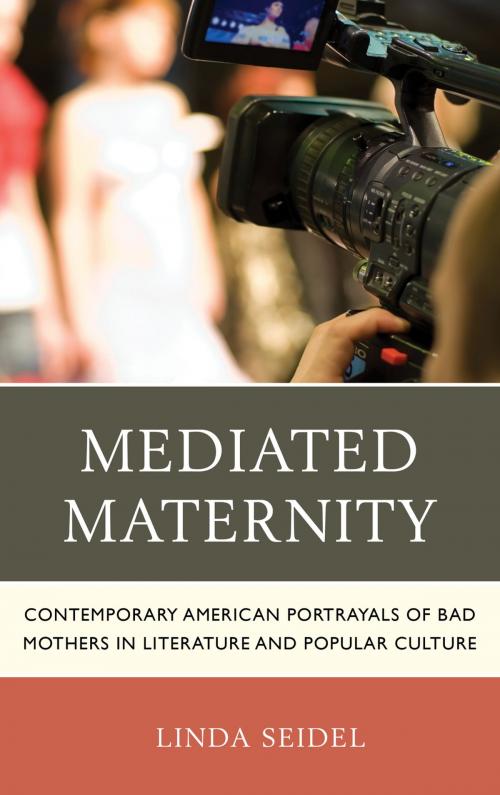Mediated Maternity
Contemporary American Portrayals of Bad Mothers in Literature and Popular Culture
Nonfiction, Family & Relationships, Family Relationships, Motherhood, Art & Architecture, General Art, Art Technique, Parenting| Author: | Linda Seidel | ISBN: | 9780739171189 |
| Publisher: | Lexington Books | Publication: | May 9, 2013 |
| Imprint: | Lexington Books | Language: | English |
| Author: | Linda Seidel |
| ISBN: | 9780739171189 |
| Publisher: | Lexington Books |
| Publication: | May 9, 2013 |
| Imprint: | Lexington Books |
| Language: | English |
Mediated Maternity: Contemporary American Portrayals of Bad Mothers in Literature and Popular Culture, by Linda Seidel, explores the cultural construction of the bad mother in books, movies, and TV shows, arguing that these portrayals typically have the effect of cementing dominant assumptions about motherhood in place—or, less often, of disrupting those assumptions, causing us to ask whether motherhood could be constructed differently. Portrayals of bad mothers not only help to establish what the good mother is by depicting her opposite, but also serve to illustrate what the culture fears about women in general and mothers in particular. From the ancient horror of female power symbolized by Medea (or, more recently, by Casey Anthony) to the current worry that drug-addicted pregnant women are harming their fetuses, we see a social desire to monitor the reproductive capabilities of women, resulting in more (formal and informal) surveillance than in material (or even moral) support.
Mediated Maternity: Contemporary American Portrayals of Bad Mothers in Literature and Popular Culture, by Linda Seidel, explores the cultural construction of the bad mother in books, movies, and TV shows, arguing that these portrayals typically have the effect of cementing dominant assumptions about motherhood in place—or, less often, of disrupting those assumptions, causing us to ask whether motherhood could be constructed differently. Portrayals of bad mothers not only help to establish what the good mother is by depicting her opposite, but also serve to illustrate what the culture fears about women in general and mothers in particular. From the ancient horror of female power symbolized by Medea (or, more recently, by Casey Anthony) to the current worry that drug-addicted pregnant women are harming their fetuses, we see a social desire to monitor the reproductive capabilities of women, resulting in more (formal and informal) surveillance than in material (or even moral) support.















